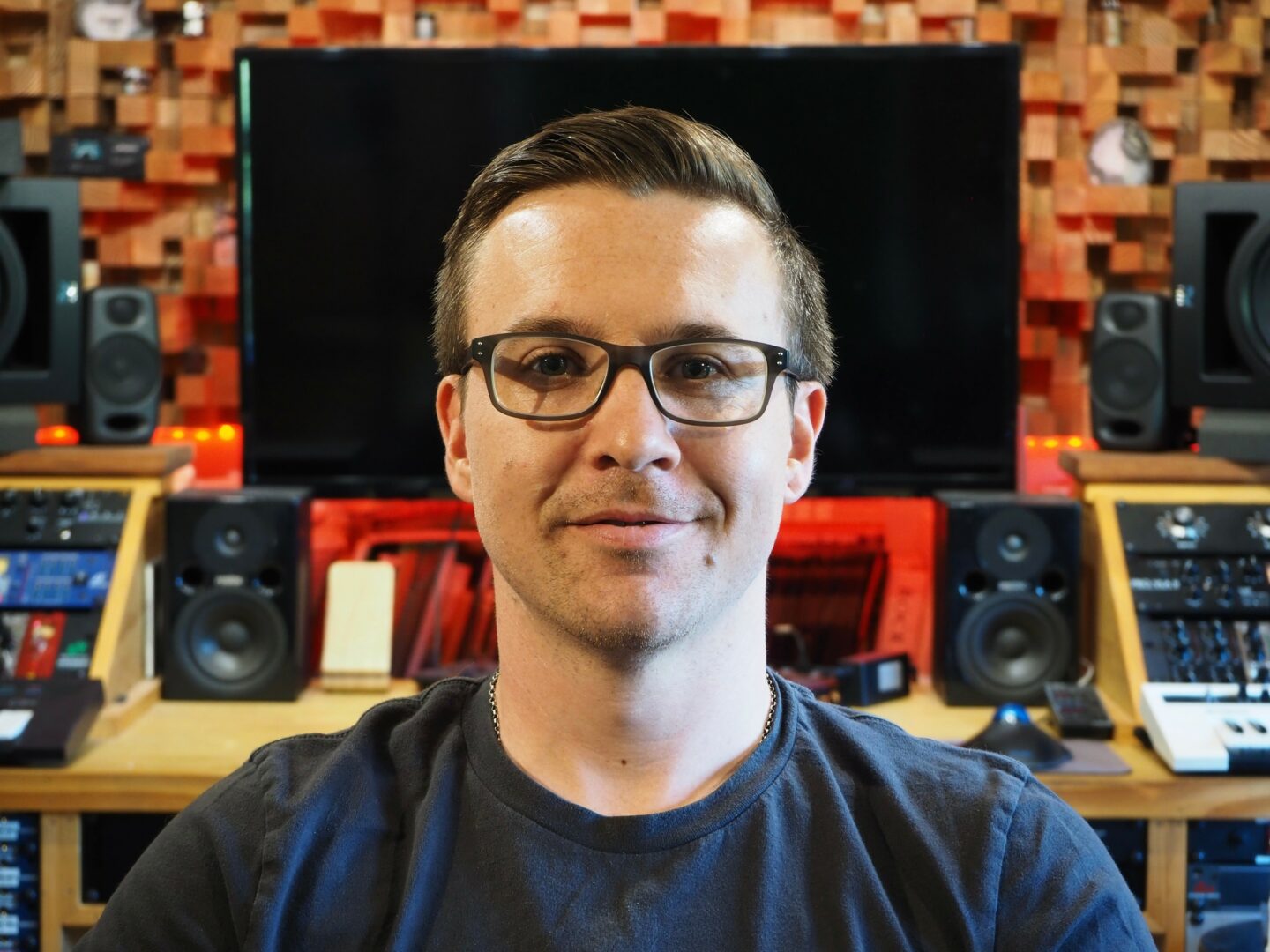Alright – so today we’ve got the honor of introducing you to Diego Hodge. We think you’ll enjoy our conversation, we’ve shared it below.
Diego, first a big thank you for taking the time to share your thoughts and insights with us today. I’m sure many of our readers will benefit from your wisdom, and one of the areas where we think your insight might be most helpful is related to imposter syndrome. Imposter syndrome is holding so many people back from reaching their true and highest potential and so we’d love to hear about your journey and how you overcame imposter syndrome.
I don’t think I have overcome imposter syndrome, instead I’ve learned to embrace it. Over the last several years I’ve worked closely with a variety of different musical artists and game developers. At some point during each project, I find myself questioning whether I’m any good at what I do. A few years ago, I was primarily working as a recording engineer and producer. I recorded bands and mixed the music that we recorded. I would get to a certain stage of mixing where I would start to doubt myself. I would wonder why my mixes didn’t sound as good as industry pros. Maybe I was bad at mixing, or maybe I was bad at recording. But through that doubt, I continued working on more projects and built my recording studio. Fast forward a few years and I started pursuing sound design for video games. I thought that my experience in music would make it an easy transition. Little did I know, it was an incredibly competitive industry with a huge pool of talented people. I started to doubt myself again. But instead of giving up, I pushed myself harder. I started doing sound redesigns of popular video games and practicing implementing sounds in popular game engines. I started reaching out to other sound designers for feedback. I started going to audio meetups and making more friends with similar interests. So many of the people that I’ve met these last few years have had similar experiences with imposter syndrome. So, while I still have imposter syndrome sometimes, it’s become more manageable. Knowing that I’m not alone has helped me accept that it’s a natural part of the creative process and without it, I don’t know if I’d have the same drive to get better at what I do.
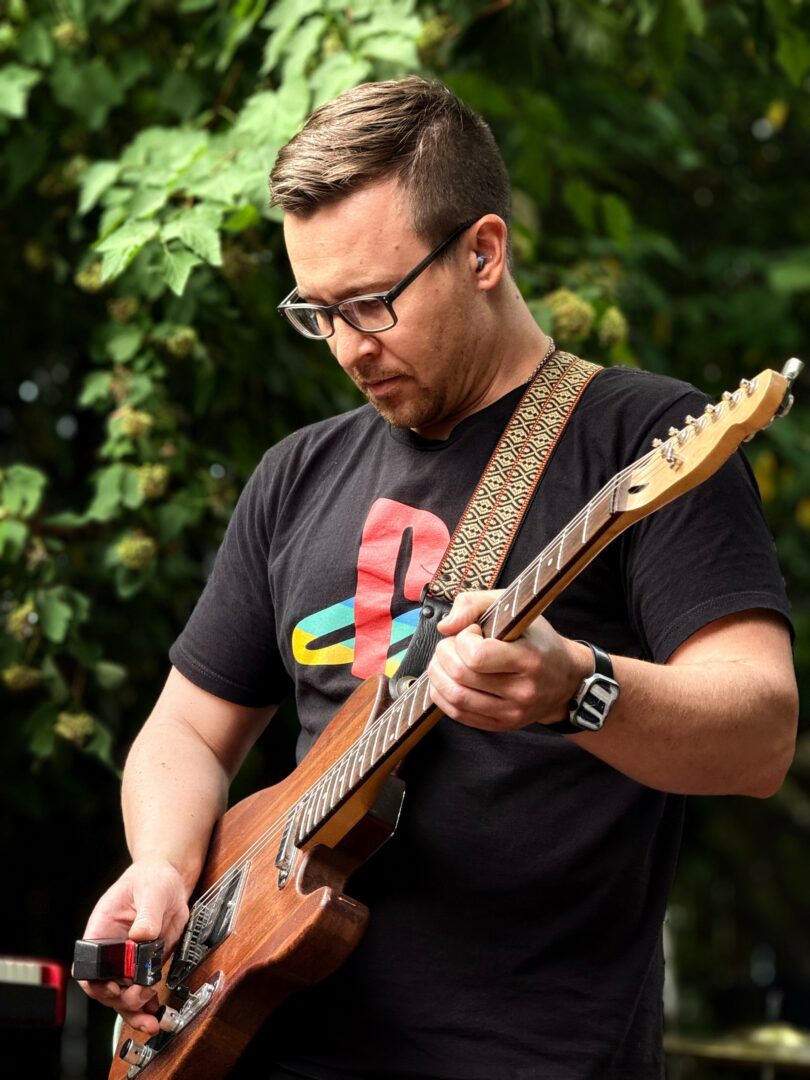
Appreciate the insights and wisdom. Before we dig deeper and ask you about the skills that matter and more, maybe you can tell our readers about yourself?
Currently I’m working on video games as a technical sound designer. I take sounds and music created by sound designers and composers and add them to the game. If you’ve played games and noticed that different surfaces sound different when the character walks on them, or the music gets more intense when you get into combat, those are the kinds of systems that I work on. I get to work with programmers and sound designers/composers to find the best solution for a given situation. One of my favorite things about this work is that I’m constantly learning. Every project has different requirements, so it’s kind of like a puzzle trying to find the best approach. I also get the opportunity to do more traditional sound design work sometimes, creating sound effects and recording source material, which is a lot of fun to do! My ideal role is one where I get to do all of the above. Aside from working in game audio, I also run a recording studio where I work with musicians recording and mixing their projects. I’ve had the chance to work on a lot of really cool albums over the years, and I’ve even played a bunch of instruments on them including guitar, keyboards and drums.
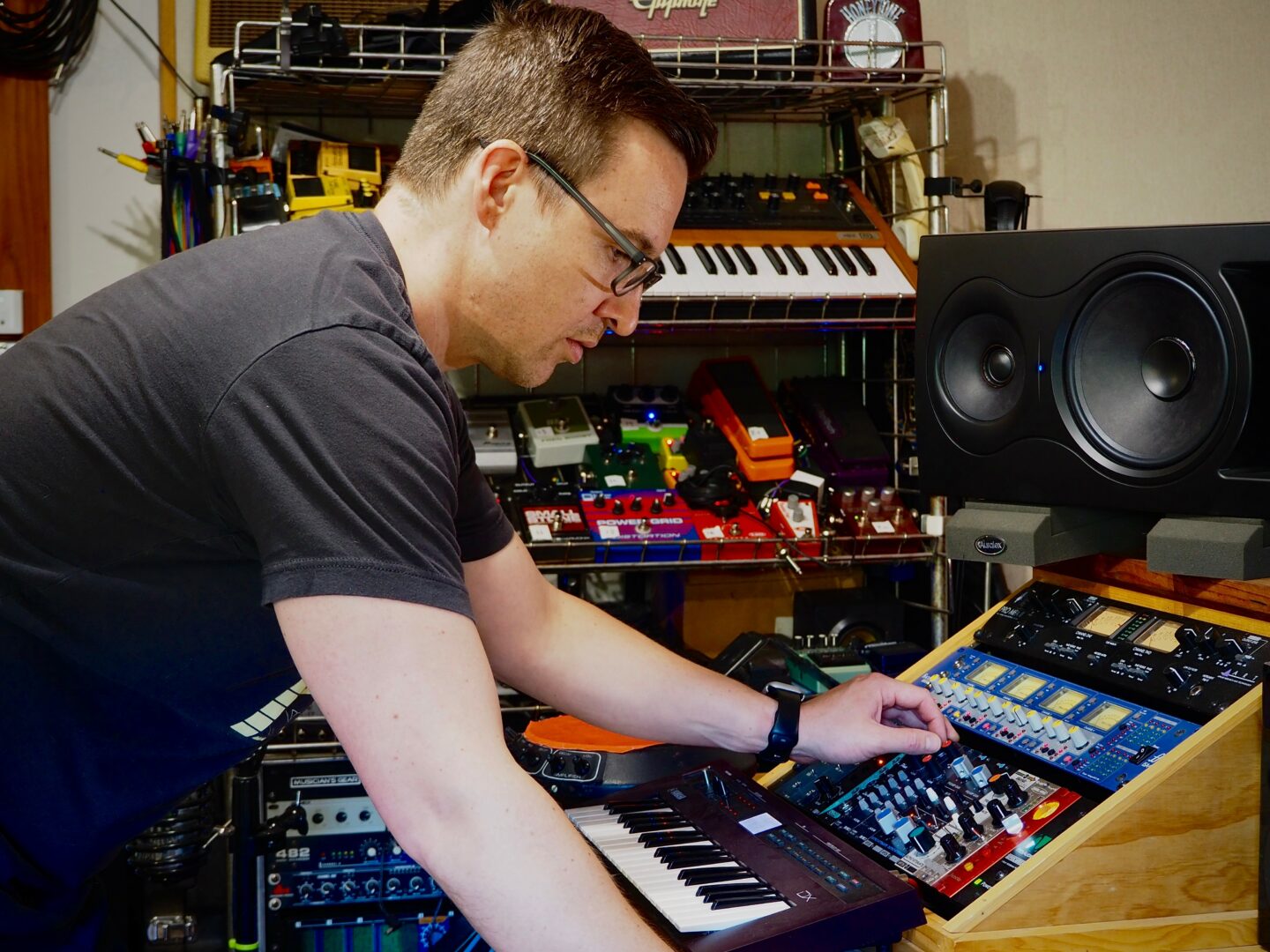
Looking back, what do you think were the three qualities, skills, or areas of knowledge that were most impactful in your journey? What advice do you have for folks who are early in their journey in terms of how they can best develop or improve on these?
I think reaching out to other people for feedback is really important, it helps you build a community and helps you grow. Don’t try to do it all on your own.
Soft skills are equally important. Working with artists, I want them to feel comfortable and have fun. Of course, I also have to make sure we’re getting the work done, so you have to find that balance. I try to take that same energy into my game audio work because I think people do better work when they like the work they’re doing and the people they’re doing it with.
Know when to call something done. It’s easy to get hyper focused on perfecting every little detail, but it’s important to know when it’s good enough to move on.
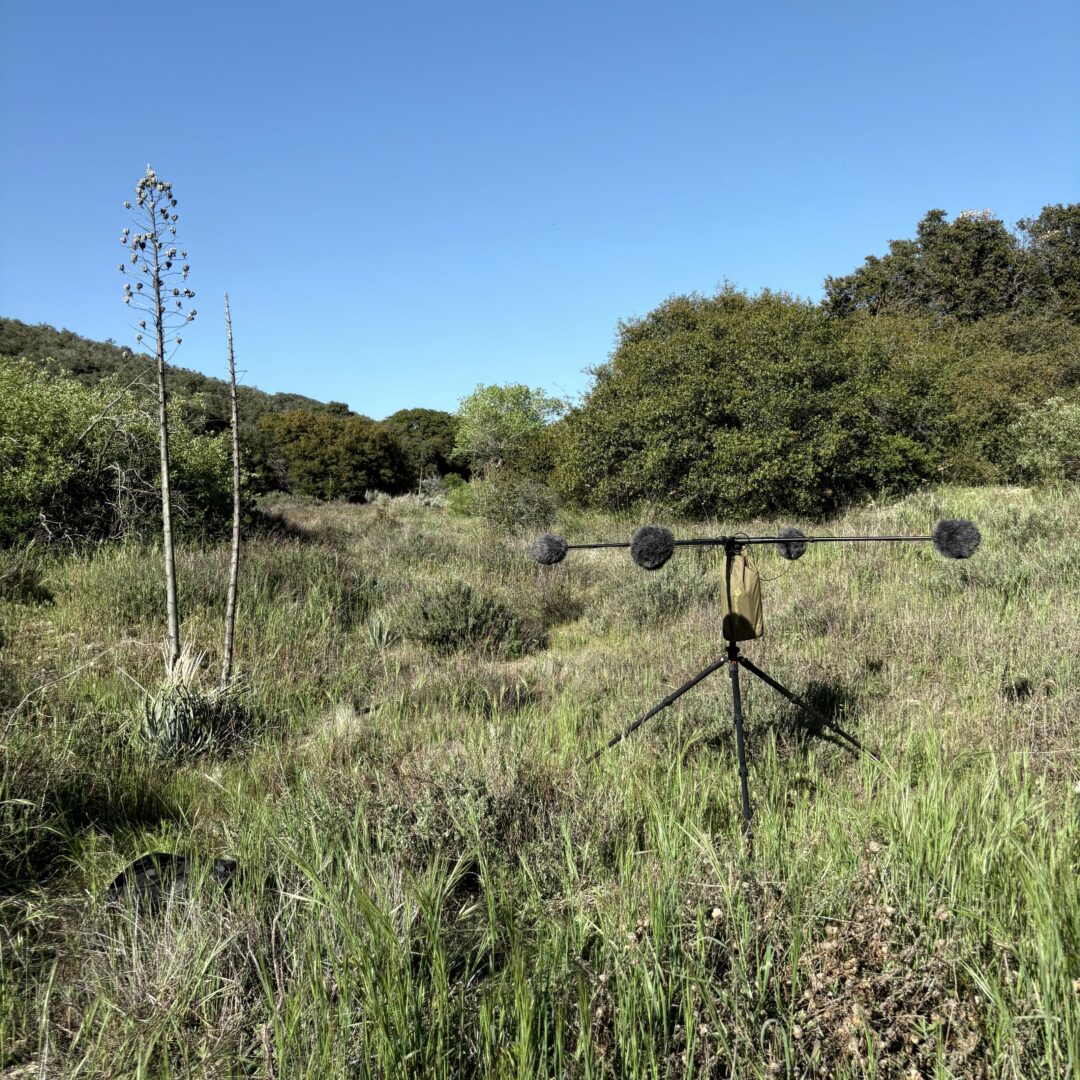
Tell us what your ideal client would be like?
I want to work with people who truly care about their project and the people they work with. I just want to make great games and great music with cool people.
Contact Info:
- Website: https://diegohodgeaudio.com/
- Instagram: https://www.instagram.com/valleycrestrecording/?hl=en
- Linkedin: https://www.linkedin.com/in/diego-hodge-audio/
- Youtube: https://www.youtube.com/@DiegoHodgeAudio/videos
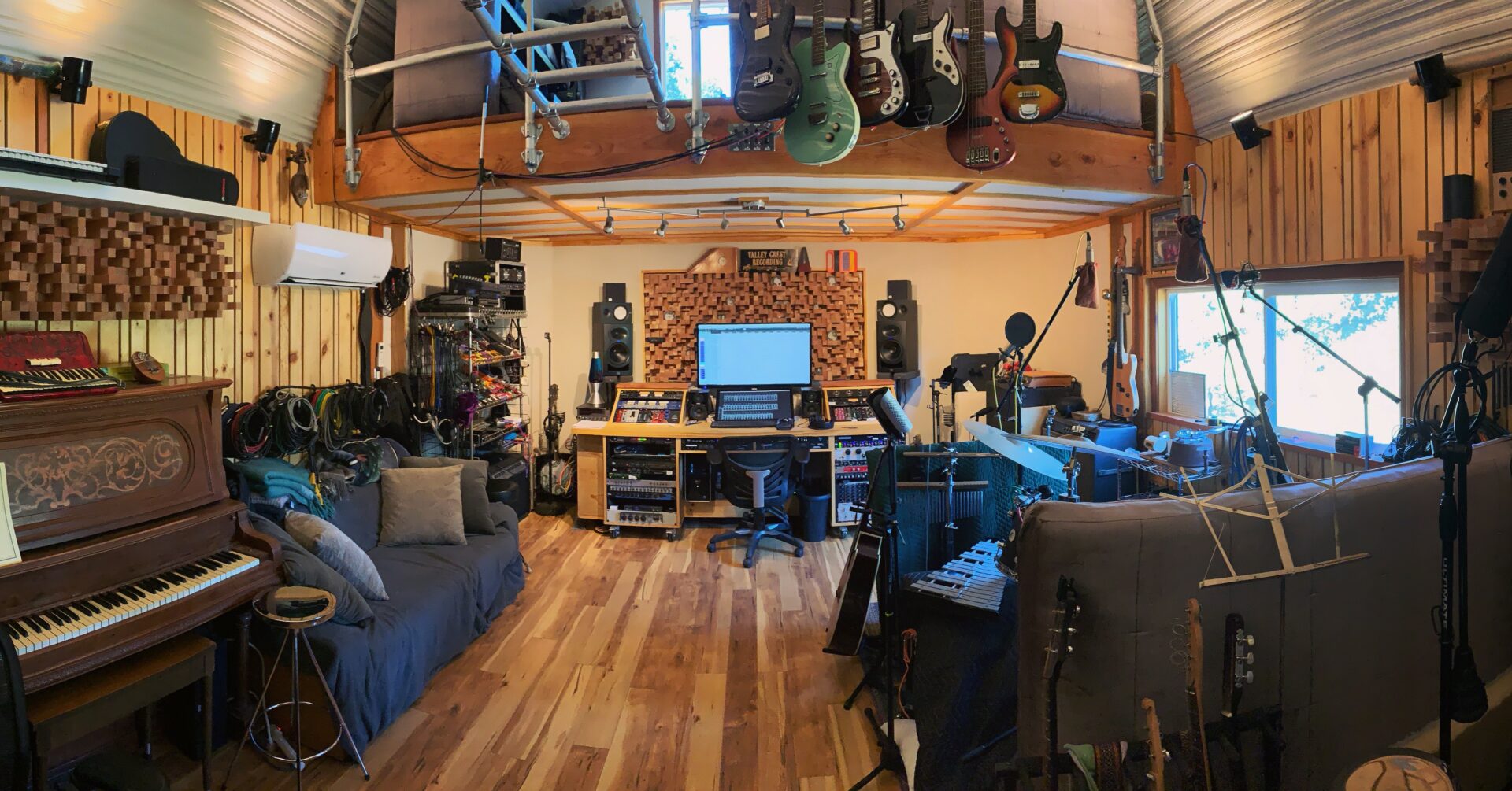
so if you or someone you know deserves recognition please let us know here.

